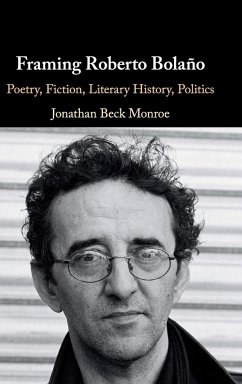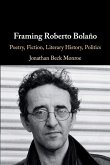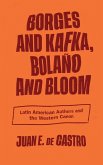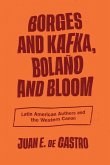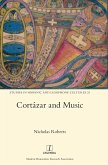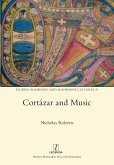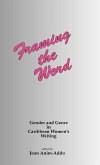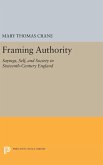Andere Kunden interessierten sich auch für
Produktdetails
- Verlag: Cambridge University Press
- Seitenzahl: 266
- Erscheinungstermin: 3. Oktober 2019
- Englisch
- Abmessung: 235mm x 157mm x 20mm
- Gewicht: 587g
- ISBN-13: 9781108498258
- ISBN-10: 1108498256
- Artikelnr.: 56395301
Hinweis: Dieser Artikel kann nur an eine deutsche Lieferadresse ausgeliefert werden.
- Libri GmbH
- Europaallee 1
- 36244 Bad Hersfeld
- gpsr@libri.de
Jonathan Beck Monroe is a former DAAD and American Council for Learned Societies (ACLS) Fellow and member of the IIEE's national Fulbright selection committee. He is the author of A Poverty of Objects: The Prose Poem and the Politics of Genre (1987) and Demosthenes' Legacy (2009), a book of prose poems and short fiction. Co-author and editor of Writing and Revising the Disciplines (2002), Local Knowledges, Local Practices: Writing in the Disciplines at Cornell (2003), editor of the special issue 'Poetry, Community, Movement' of the journal Diacritics, and 'Poetics of Avant-Garde Poetries' in Poetics Today. He has published widely on questions of genre, writing and disciplinary practices, innovative poetries of the past two centuries, and avant-garde movements and their contemporary legacies.
Introduction: unpacking Bolaño's library; Part I: 1. 'Undisciplined
writing' Antwerp (Amberes); 2. Poetry as symptom and cure Monsieur Pain; 3.
The novel's regimes made visible in the Third Reich (El Tercer Reich); Part
II: 4. Poetry at the ends of its lines the unknown university (La
universidad desconocida) Nazi literature in the Americas (La literatura
nazi en América); 5. Post-avant histories distant star (Estrella distante);
Part III: 6. Dismantling narrative drive the savage detectives (Los
detectives salvajes); 7. Making visible the 'non-power' of poetry Amulet
(Amuleto); 8. Poetry, politics, critique by night in Chile (Nocturno de
Chile); Part IV: 9. Literary taxonomies after the wall woes of the true
policeman (Los sinsabores del verdadero policía); 10. 'What a relief to
give up literature' 2666; Conclusion: from the known to the unknown
university.
Introduction: unpacking Bolaño's library; Part I: 1. 'Undisciplined
writing' Antwerp (Amberes); 2. Poetry as symptom and cure Monsieur Pain; 3.
The novel's regimes made visible in the Third Reich (El Tercer Reich); Part
II: 4. Poetry at the ends of its lines the unknown university (La
universidad desconocida) Nazi literature in the Americas (La literatura
nazi en América); 5. Post-avant histories distant star (Estrella distante);
Part III: 6. Dismantling narrative drive the savage detectives (Los
detectives salvajes); 7. Making visible the 'non-power' of poetry Amulet
(Amuleto); 8. Poetry, politics, critique by night in Chile (Nocturno de
Chile); Part IV: 9. Literary taxonomies after the wall woes of the true
policeman (Los sinsabores del verdadero policía); 10. 'What a relief to
give up literature' 2666; Conclusion: from the known to the unknown
university.

